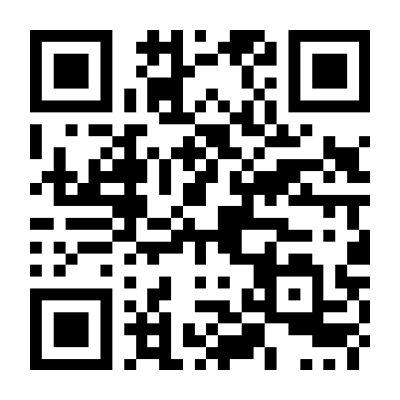单选题
2分
Text 4 The most thoroughly studied intellectuals in the history of the New World are the ministers a...
Text 4
The most thoroughly studied intellectuals in the history of the New World are the ministers and political leaders of seventeenth-century New England.According to the standard history of American philosophy, nowhere else in colonial America was "So much importance attached to intellectual pursuits." According to many books and articles, New England's leaders established the basic themes and preoccupations of an unfolding, dominant Puritan tradition in American intellectual life.
To take this approach to the New Englanders normally means to start with the Puritans' theological innovations and their distinctive ideas about the church-important subjects that we may not neglect.But in keeping with our examination of southern intellectual life, we may consider the original Puritans as carriers of European culture, adjusting to New World circumstances.The New England colonies were the scenes of important episodes in the pursuit of widely understood ideals of civility and virtuosity.
The early settlers of Massachusetts Bay included men of impressive education and influence in England.Besides the ninety or so learned ministers who came to Massachusetts church in the decade after 1629,There were political leaders like John Winthrop, an educated gentleman, lawyer, and official of the Crown before he journeyed to Boston.There men wrote and published extensively, reaching both New World and Old World audiences, and giving New England an atmosphere of intellectual earnestness.
We should not forget , however, that most New Englanders were less well educated.While few craftsmen or farmers, let alone dependents and servants, left literary compositions to be analyzed, it is obvious that their views were less fully intellectualized.Their thinking often had a traditional superstitions quality.A tailor named John Dane, who emigrated in the late 1630s, left an account of his reasons for leaving England that is filled with signs.Sexual confusion, economic frustrations , and religious hope—all came together in a decisive moment when he opened the Bible, told his father the first line he saw would settle his fate, and read the magical words: "come out from among them, touch no unclean thing , and I will be your God and you shall be my people." One wonders what Dane thought of the careful sermons explaining the Bible that he heard in puritan churches.
Meanwhile, many settles had slighter religious commitments than Dane's, as one clergyman learned in confronting folk along the coast who mocked that they had not come to the New world for religion ."Our main end was to catch fish."
36. The author notes that in the seventeenth-century New England___________.
The most thoroughly studied intellectuals in the history of the New World are the ministers and political leaders of seventeenth-century New England.According to the standard history of American philosophy, nowhere else in colonial America was "So much importance attached to intellectual pursuits." According to many books and articles, New England's leaders established the basic themes and preoccupations of an unfolding, dominant Puritan tradition in American intellectual life.
To take this approach to the New Englanders normally means to start with the Puritans' theological innovations and their distinctive ideas about the church-important subjects that we may not neglect.But in keeping with our examination of southern intellectual life, we may consider the original Puritans as carriers of European culture, adjusting to New World circumstances.The New England colonies were the scenes of important episodes in the pursuit of widely understood ideals of civility and virtuosity.
The early settlers of Massachusetts Bay included men of impressive education and influence in England.Besides the ninety or so learned ministers who came to Massachusetts church in the decade after 1629,There were political leaders like John Winthrop, an educated gentleman, lawyer, and official of the Crown before he journeyed to Boston.There men wrote and published extensively, reaching both New World and Old World audiences, and giving New England an atmosphere of intellectual earnestness.
We should not forget , however, that most New Englanders were less well educated.While few craftsmen or farmers, let alone dependents and servants, left literary compositions to be analyzed, it is obvious that their views were less fully intellectualized.Their thinking often had a traditional superstitions quality.A tailor named John Dane, who emigrated in the late 1630s, left an account of his reasons for leaving England that is filled with signs.Sexual confusion, economic frustrations , and religious hope—all came together in a decisive moment when he opened the Bible, told his father the first line he saw would settle his fate, and read the magical words: "come out from among them, touch no unclean thing , and I will be your God and you shall be my people." One wonders what Dane thought of the careful sermons explaining the Bible that he heard in puritan churches.
Meanwhile, many settles had slighter religious commitments than Dane's, as one clergyman learned in confronting folk along the coast who mocked that they had not come to the New world for religion ."Our main end was to catch fish."
36. The author notes that in the seventeenth-century New England___________.
参考答案: B
参考解析: 本题答案来源于文章第一段第二句“根据美国哲学的正统历史,除了在殖民地的美洲,没有其他地方给予知识分子追求这么重视,根据一些书和文章的记载,新英格兰的领导人确立了基本主题和在美国知识分子当中一种自由、清教徒支配方式的传统”,重视对知识分子的追求,也就是“鼓励知识分子的兴趣”,四个选项中,B的内容与此句吻合,故答案为B。A是对第一段出现的清教徒和政治信息的错误结合;C是文章中无中生有的内容;D则是对文章信息的过度推断。

 百度扫一扫练题
百度扫一扫练题
 关注千题库公众号
关注千题库公众号








